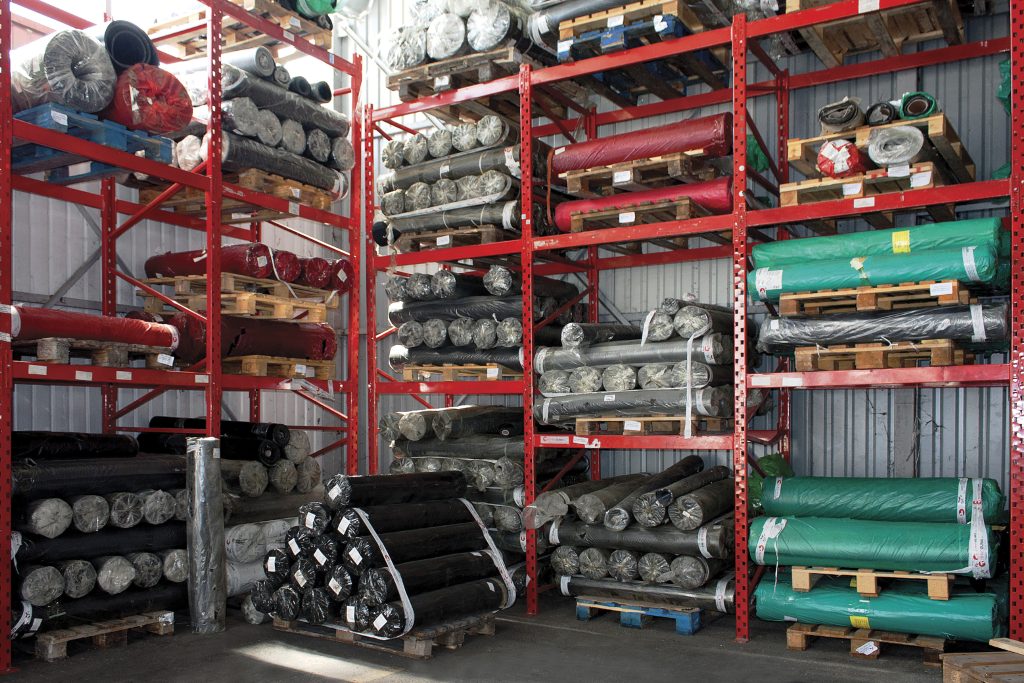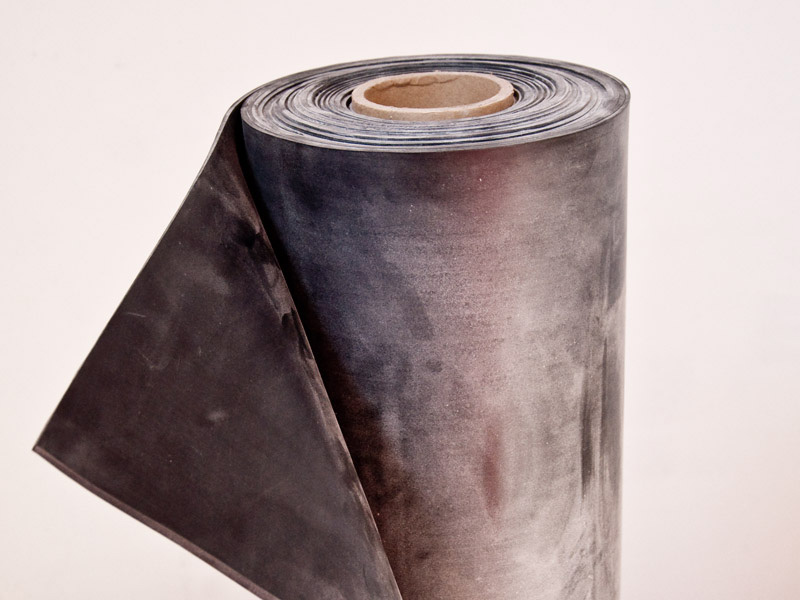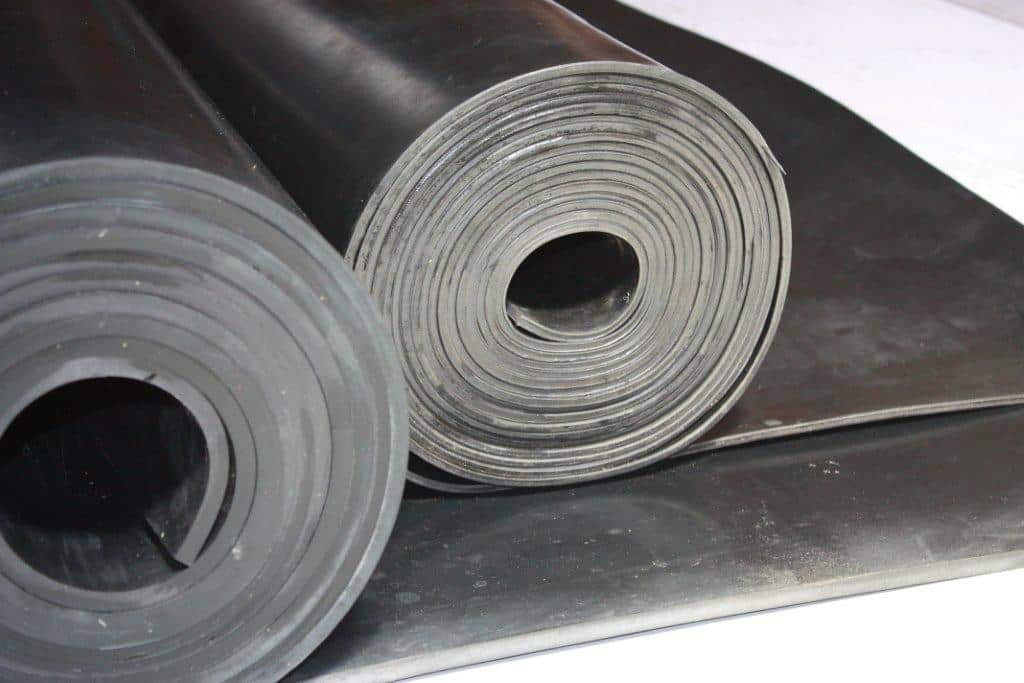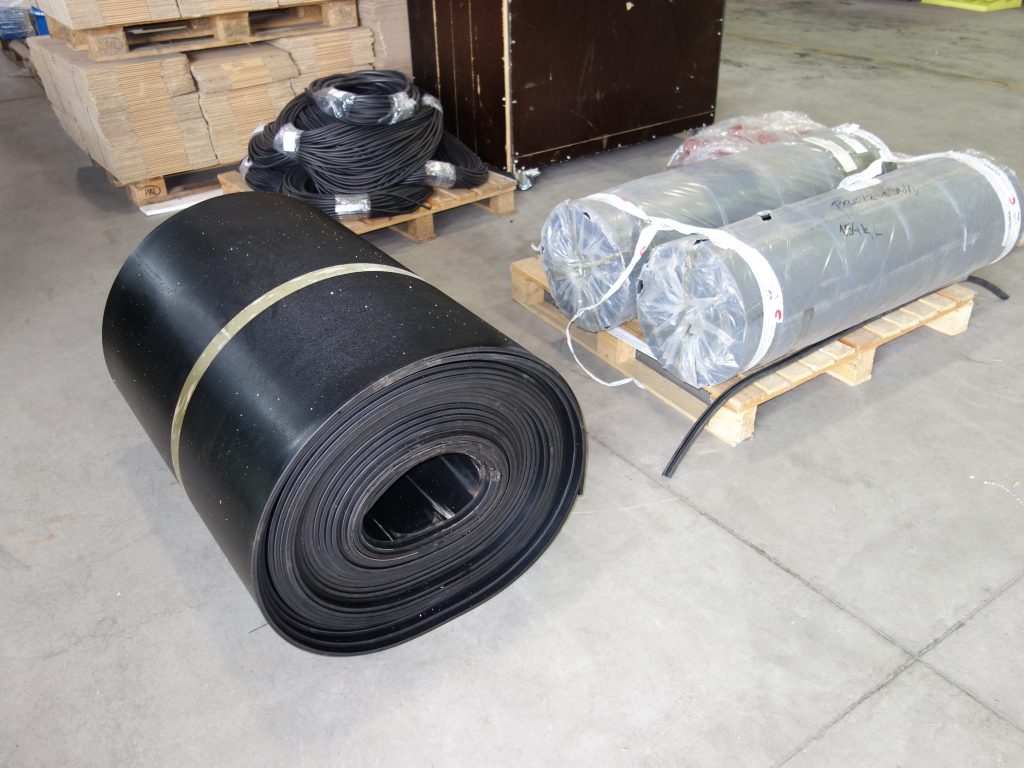Technical rubber – smooth
Technical rubber is a highly adaptable industrial material that is easy to cut, bend, and shape. Depending on its composition, technical rubber is resistant to water, weather conditions, temperature, and ozone. It is also resistant to weak acids, alkalis, solvents, mineral oils, petrol, and petroleum derivatives.
At Tehnoguma, we offer technical rubber with different characteristics and classifications. We sell smooth technical rubber in the form of rolls or sheets. In addition to the types mentioned, we can also supply other qualities of material upon request.
Roll dimensions:
1200 x 10,000 for thicknesses of 1 – 15 mm 1200 x 5,000 for thicknesses of 20 – 30 mm
Sheet dimensions:
1000 x 1000 for thicknesses of 40 – 60 mm
The choice of a particular type of rubber depends on:
- The place of use
- The medium to which the rubber will be exposed
- The temperature
- The purpose and expected lifespan and abrasion resistance
Basic characteristics of rubber types from our offer:
SBR (styrene-butadiene) is a synthetic rubber that is resistant to water, salts, and weak acids. It is also resistant to abrasion and material aging. Due to the higher amount of styrene butadiene, it is a harder rubber and less elastic. It is not very resistant to weather conditions, petrol, or fuel.
NR: Natural rubber (polyisoprene) is characterized by above-average tensile strength and elasticity (up to 500%), making it resistant to abrasion, hot and cold water, ammonia, ethylene glycol, diluted acids and alkalis. It is not resistant to petrol and organic oils. Its resistance to high temperatures and ozone is limited.
NBR (nitrile-butadiene) rubber is resistant to mineral oils, greases, liquid fuels, aromatic solvents, vegetable oils, and diluted acids and alkalis.
EPDM rubber (ethylene propylene diene monomers) is characterized by good resistance to ozone, aging, chemical solutions, acids, alkalis, and steam. It is resistant to UV radiation and extreme temperatures up to 130°C.
CR (Neoprene) rubber (polychloroprene), also known as neoprene rubber, has good mechanical strength and resistance to water and aging. It is highly resistant to ozone and weather conditions. It is moderately resistant to oils and fuels. Its specificity is its property of adhering to various substrates.
VMQ (Silicone) rubber (vinyl methyl silicone) is extremely resistant to chemical influences, aging, and extreme temperatures. It is most commonly used in the chemical, food, and pharmaceutical industries.
IIR (Butyl) rubber (isobutylene-isoprene) has excellent resistance to oxidation, ozone, and weather conditions. It can withstand long-term exposure to high temperatures and shows stability in diluted acids and alkalis. It does not allow gas or water to pass through, making it ideal for the inner layer of pipes.



